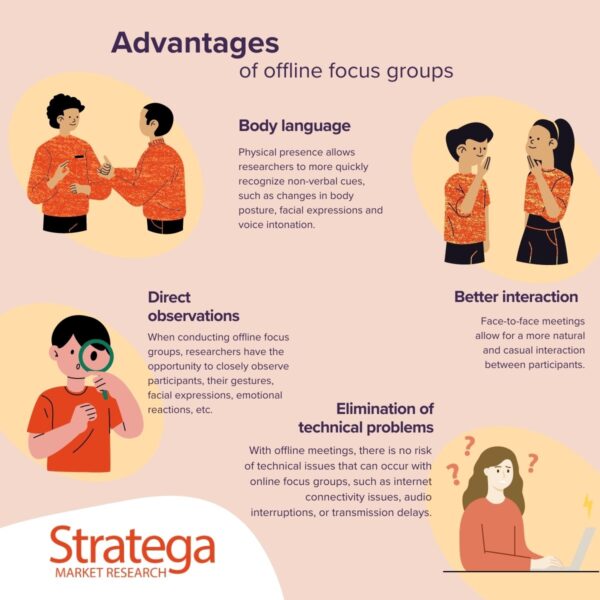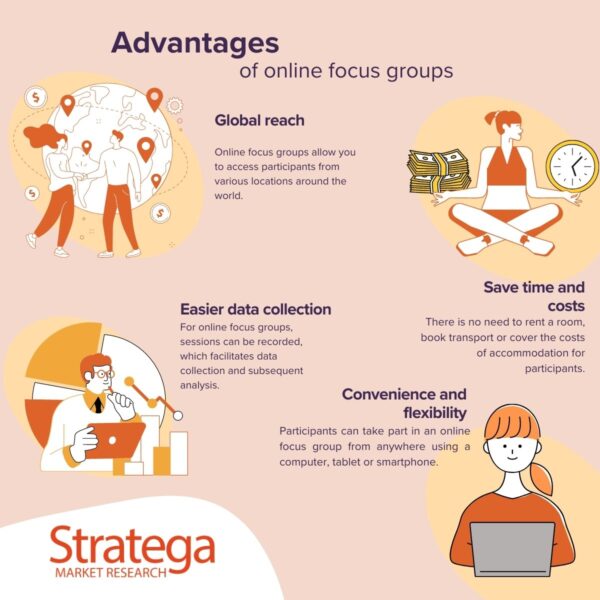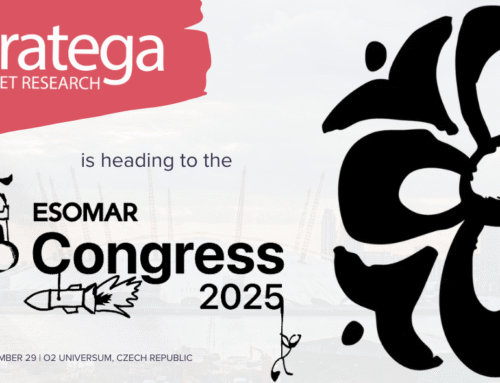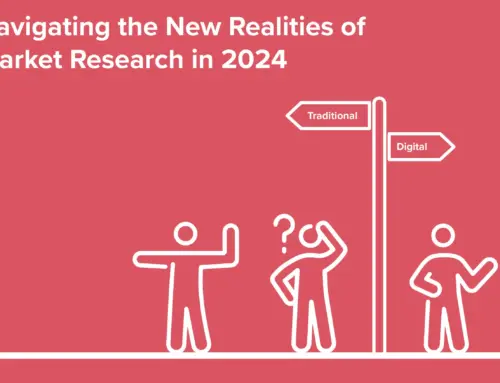One of the most popular qualitative market research methods are focus groups. With technological advancements, traditional focus groups have evolved into online focus groups. In this article, we will compare the two methods, highlighting their advantages, disadvantages, and key considerations for choosing between them.
Bright sides of both methodologies

Nonetheless, focus groups online have emerged as a cost-effective and convenient alternative. These sessions take place virtually using web conferencing platforms. Online focus groups transcend geographical boundaries, enabling participants from diverse locations to join discussions. The convenience and flexibility of digital focus group and remote participation attract busy professionals and individuals with mobility constraints. Moreover, online focus groups are generally more cost-effective as they eliminate travel expense and facility rental.
Facing problems while conducting focus groups online
However, online focus group come with its own set of challenges. Technical difficulties, such as glitches, can disrupt discussions and hinder data collection. The online environment also introduces potential distractions that may impact participant engagement and focus. Additionally, the absence of non-verbal cues and limited body language interpretation can be a drawback for entire group.
When choosing between online and in person focus groups , consider key factors. Some topics may be better suited for traditional focus group, while others can be effectively explored online. Online groups appeal to tech-savvy participants and those who value convenience, while traditional focus groups may attract individuals who prefer personal interactions. Budget and resources should also be considered, as traditional focus group is more expensive due to venue rentals, travel costs, and participant compensation.
To ensure data quality in virtual focus groups, effective moderation, participant recruitment, and screening are crucial. Choosing the right technology and platform is essential for a smooth and secure online session. Overcoming challenges, such as enhancing participant engagement and addressing potential bias, is important to obtain reliable insights.
What kind of focus group should I conduct then?
In some cases, a hybrid approach that combines elements of both paid online and offline focus groups may be the best solution. This allows for the benefits of face-to-face interaction while leveraging the convenience and broader reach of online sessions.
In conclusion, both online and in person focus groups have their advantages and disadvantages. The choice between them depends on the researchers, objectives, target audience characteristics, and available resources. By carefully considering these factors, market research agencies can select most appropriate method to gather valuable insights and make informed decisions.





